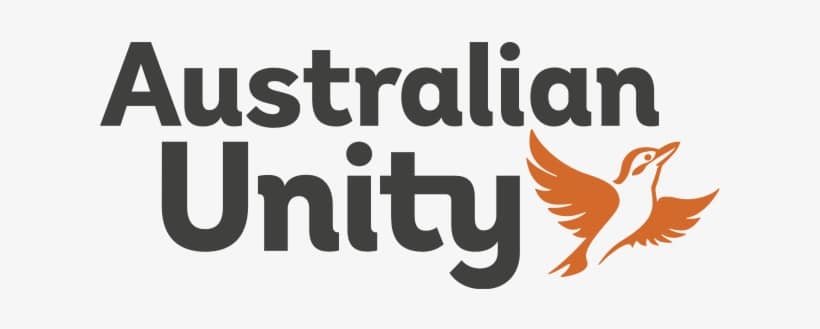Home > Health Insurance > Health Insurance For Over 70-Year-Olds Australia
Health Insurance For Over 70-Year-Olds Australia
Compare free quotes for health insurance for over 70-year-olds through Savvy.
Author
Savvy Editorial TeamFact checked



We’ve partnered with Compare Club to bring you a range of health insurance policies to help you compare them side by side.
Senior Australians aged over 70 often require the most health care services of any age group. For this reason, it’s important to review your health insurance frequently to make sure you have the right cover for your current needs.
Savvy can help you find and compare health insurance policies which may suit someone over the age of 70 years. By filling out a simple online form, you can consider free online quotes in one place, helping senior Australians find and compare health insurance policies from some of Australia’s most trusted insurers. Start the process with us today.
What health insurance options are there for over 70-year-olds in Australia?
Health insurance providers don’t offer policies solely designed for one particular age group. This is due to Australia’s health insurance regulations which prevent insurers from discriminating against any Australians based on age, gender or medical history. This ensures all Australians can access health cover for the same cost, regardless of their underlying medical conditions or health needs.
However, there are some health cover policies which may be more suitable for older Australians, as they offer cover in a wider range of areas and include coverage for health conditions which are more common in seniors, such as cataracts and the need for joint replacements. Coverage for these items is only offered with higher-tier hospital policies such as silver plus and gold hospital cover.
There are two types of health insurance in Australia which, between them, cover medical treatment received both in hospital and in the community. These are:
Hospital cover
Hospital cover can help pay for the cost of being treated as a private patient, both in private and public hospitals. As a private patient, you may be able to have your own private room (subject to availability) and may be able to avoid long public hospital waiting lists for surgery for medical needs such as hip replacement. It can cover the cost of areas such as:
- Admission fees, theatre and surgery fees
- Fees charged by doctors, surgeons and anaesthetists
- Tests administered whilst you’re an in-patient in hospital (such as x-rays, CT and MRI scans, blood tests and more)
- Medications prescribed to you whilst you’re in hospital
- Allied health services you receive in hospital such as pain management, physiotherapy and remedial massage
However, even if you have the top level of cover, there may still be some out-of-pocket expenses you may be required to pay, such as an excess on your policy and co-payments for each night you spend in hospital (though not all insurers will require you to pay both or either). Ambulance cover can also be included with hospital cover policies, although some insurers also offer it bundled with extras policies.
Extras cover
Extras cover can help pay for the cost of treatments which senior Australians may use in everyday life outside of a hospital setting, such as optical, dental and hearing aid services. This type of health insurance may be particularly important for seniors who may need to access many of the services covered by an extras policy. These include:
- Optical services
- Hearing aids
- General and major dental
- Orthodontics
- Physiotherapy
- Chiropractic
- Remedial massage
- Podiatry
- Speech therapy
- Dietetics
- Psychology
- Vaccinations
- Non-PBS medications
- Other health and wellbeing services, such as phone helplines and assistance to manage weight loss or diabetes
Most extras cover policies allocate a set amount of money you can claim back for different categories of treatment. The more expensive the policy you decide to buy, the higher these benefit limits will be. For example, a cheap extras policy may allow you to claim $200 a year for general dental services, whereas a more expensive one may allow you to claim up to $800 for dental treatment.
How do I compare health insurance policies suitable for over 70-year-olds?
These are the things to compare when choosing between hospital cover policies as a senior Australian:
- Level of cover – there are four tiers of hospital cover you can choose from: basic, bronze, silver and gold. There are strict government rules about what each tier of policy must offer in terms of clinical conditions. A basic policy will be the cheapest but is only required to offer restricted cover for three areas: rehabilitation, in-hospital psychiatric services and palliative care. On the other hand, a gold policy will cost the most but will also offer cover for all clinical conditions including cataracts, joint replacements including knee replacements, insulin pumps, pain management and sleep studies.
- Excess and co-payments – these may be payable out-of-pocket if you are admitted to hospital as a private patient. Excess payments range from zero to $750, while co-payments can be anywhere from zero to $100 a night. Not all insurers will require you to pay these, but opting to do so at a higher level may reduce your health insurance premiums.
- Waiting periods – if you're considering buying a higher level of cover than you’ve previously had (for example, switching from bronze to silver, or from silver to gold), you may have to serve additional waiting periods for areas of cover that you haven’t had before. However, you shouldn’t have to re-serve waiting periods that you’ve already served with your previous health fund. Consider whether the policy you’re looking at will require you to re-serve any waiting periods before you buy.
- Cost – since senior Aussies have the greatest health needs, you’ll naturally want the greatest cover you can afford. By comparing policies through Savvy, you’ll be able to see the difference in cost between similar tiers of cover and compare what’s on offer with each one.
In addition to the cost of the policy, some of the other areas to consider when comparing extras cover include:
- Benefit limits – look at how much you can claim back in total for each area that’s covered by the policy. These limits may be per financial or calendar year or for the life of the policy.
- Inclusions – compare the areas of healthcare that are covered by the policy. If you have particular health issues (such as using hearing aids, for example), look for policies where they’re included in your coverage.
- Exclusions – check what areas of healthcare may be excluded from the policy. For example, some policies won’t cover the cost of acupuncture or alternative health treatments.
- Level of cover – look at what percentage of the cost of treatment you’ll be able to claim back. For example, cheaper policies may only allow you to claim back 50% of the cost of seeing a physiotherapist, while a more expensive policy may allow you to claim back 85% of the cost.
- Waiting periods – because these aren't as regulated as those of hospital policies, it's especially crucial to take the time to consider what waiting periods may apply to you in areas of importance to you.
Types of health insurance
This can help you pay for medical treatment if you need to be admitted to hospital. It can help cover the cost of your admission or accommodation and the fees charged by doctors, surgeons and anaesthetists. It can also cover other costs associated with a stay in a private hospital.
This helps cover the costs of health care treatments outside a hospital setting which aren’t covered by Medicare. This can include major and minor dental treatment, orthodontics, hearing aids, physiotherapy, glasses, contact lenses and podiatry (in most cases with annual limits).
This is a standard health insurance policy designed for a single person, rather than being tailored to cater to the needs of a couple or family. It may include hospital cover plus extras, or either of these types of insurance on their own, depending on what you're after for your health cover.
A family health insurance policy is designed for a family unit including dependent children who may reach up to 31 years of age with some insurers. It offers private health insurance suitable for the whole family and may include shared limits for all members included in your policy.
A health insurance policy aimed at seniors is designed to appeal to people who are in the second half of their life. These are often specific Silver Plus policies that offer the same cover as other health insurance policies, with the exception that pregnancy and childbirth cover may not be included.
Visitors who are in Australia on a temporary basis for travel, work or study may be able to take out Overseas Visitors Health Cover (OVHC). Many visas issued in Australia come with a requirement to take out this type of insurance, which covers visitors who may not be covered by Medicare.
Ambulance cover is generally available either packaged into your private health insurance or on its own as a separate policy or subscription. By having this protection, you could be covered for all eligible ambulance travel in Australia (subject to your insurer's terms and conditions).
The cheapest and most barebones form of private hospital insurance, this can include cover for rehab, in-hospital psychiatric services and palliative care. Having this policy will enable you to avoid paying the Medicare Levy Surcharge (MLS) and Lifetime Health Cover (LHC) loading.
Bronze hospital cover is a step up from basic insurance, including 18 further clinical categories such as ear, nose and throat, bone, joint and muscle, digestive system, joint reconstructions, gynaecology and chemotherapy, radiotherapy and immunotherapy for cancer.
Silver hospital cover is the second-most expensive type of policy and offers the second-most clinical categories. On top of what's offered by basic and bronze cover, it also includes heart and vascular system, lung and chest, blood, hearing device implantation and dental surgery.
The highest level of private hospital insurance available in Australia, gold policies can offer cover for pregnancy and birth, weight loss surgery, assisted reproductive services and insulin pumps on top of all the categories provided by silver, bronze and basic hospital insurance.
Why compare health insurance through Savvy?
100% free service
Our comparison tool doesn’t cost you a cent, allowing anyone to compare offers from trusted insurers around Australia for free.
Compare policies online in one place
You can consider the inclusions, premiums, benefits and other key factors easily with us, whether you’re at home or on the go.
Trusted insurers
Considering offers from trusted insurance providers can help give you peace of mind that you’re comparing high-quality policies.
Frequently asked questions about health insurance for over 70s
When considering if it’s worth having private health insurance vs using Medicare, think about your current health status and the services you regularly use. Private health insurance can not only help you cover the cost of certain treatments, but it brings peace of mind to many Australians who can be safe in the knowledge they won’t have to bear the full financial weight of eligible treatments under their policy.
If you require urgent hospital treatment, you’ll be taken by ambulance to the nearest appropriate public hospital and receive treatment as a public patient. However, if you do have private health cover, you may be able to be transferred to a private hospital for your recovery or further non-urgent treatment.
No – private health insurance for seniors doesn't cover the cost of residential aged care or in-home care.
No – switching from one health provider to another can be a quick and easy process, which you can get assistance with if you ask for a call-back through Savvy. It can usually be completed within one day and you won’t be left uninsured during the changeover period.
No, there is no upper age limit on when you can take out a private health insurance policy in Australia. Under Australia's community rating health insurance system, it is illegal to discriminate against anyone based on their age, gender or pre-existing health conditions.
Helpful health insurance guides
Looking for health insurance to cover your condition or treatment?
Read one of our helpful guides on a range of different ailments and potential hospital or extras treatments to help you find out if they're covered.
Disclaimer:
Savvy is partnered with Compare Club Australia Pty Ltd (AFS representative number 001279036) of Alternative Media Pty Ltd (AFS License number 486326) to provide readers with a variety of health insurance policies to compare. Savvy earns a commission from Compare Club each time a customer buys a health insurance policy via our website. We don’t arrange for products to be purchased from these brands directly, as all purchases are conducted via Compare Club.
Savvy’s comparison service is provided by Compare Club. Compare Club compares selected products from a panel of trusted insurers and does not compare all products in the market.
Any advice presented above or on other pages is general in nature and doesn’t consider your personal or business objectives, needs or finances. It’s always important to consider whether advice is suitable for you before purchasing an insurance policy.
For any further information on the variety of insurers compared by Compare Club or how their business works, you can read their Financial Services Guide.










